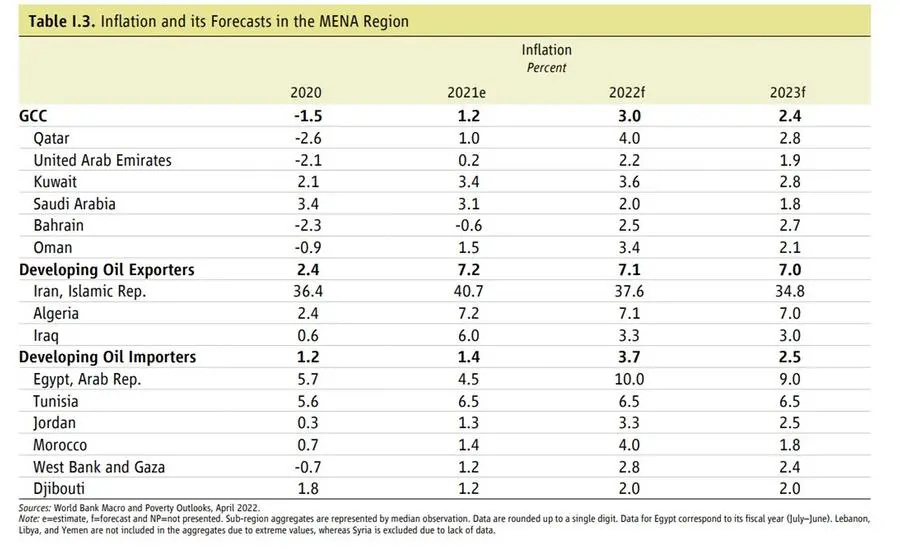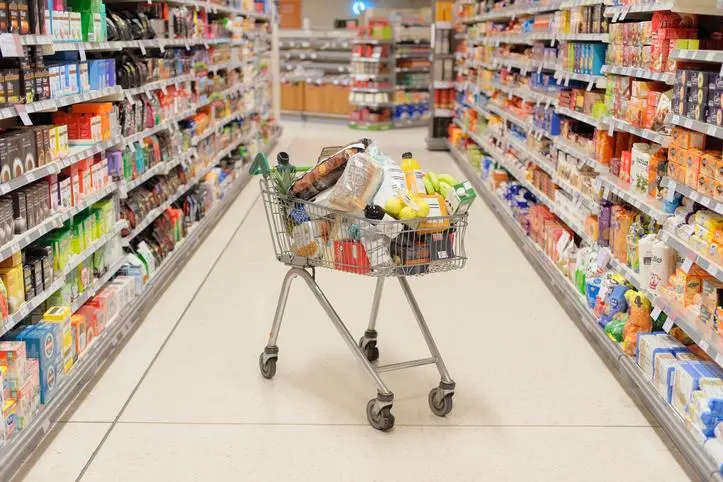PHOTO
Many countries in the Middle East and North Africa will see further food price increases and will be at risk of food insecurity, the World Bank said in a report.
Djibouti, Lebanon, Syria and Yemen have seen sharp increases in food prices across the board. Food and energy price increases have disproportionately hurt the poor because they spend larger shares of their expenditure on food and energy.
According to the World Bank, the Ukraine war may exacerbate the severity of food insecurity in these countries.
"Many of the vulnerable populations disproportionately afflicted during the past two years will be pushed into poverty. The population living in poverty in the MENA region will increase by 9 million between pre-pandemic levels and the end of 2022," the World Bank said.


However, public assistance could help to mitigate the impact, it said.
"In summary, the MENA region is experiencing an uneven recovery under a high uncertainty scenario, clouded by geopolitical risks, the ongoing pandemic, and the still emerging economic repercussion of the Ukraine war," the World Bank said in its April 2022 MENA economic update.
While oil exporting nations in the MENA region appear to be recovering faster as oil prices soar, yet a majority of MENA developing economies may face a slower recovery with downside risks from rising commodity prices, it said.
"Furthermore, increasing food prices on top of rising energy prices may have heterogenous negative effects within countries by hurting poor households disproportionately, depending on the policy responses," the report noted.
(Reporting by Seban Scaria; editing by Anoop Menon)
seban.scaria@lseg.com





















